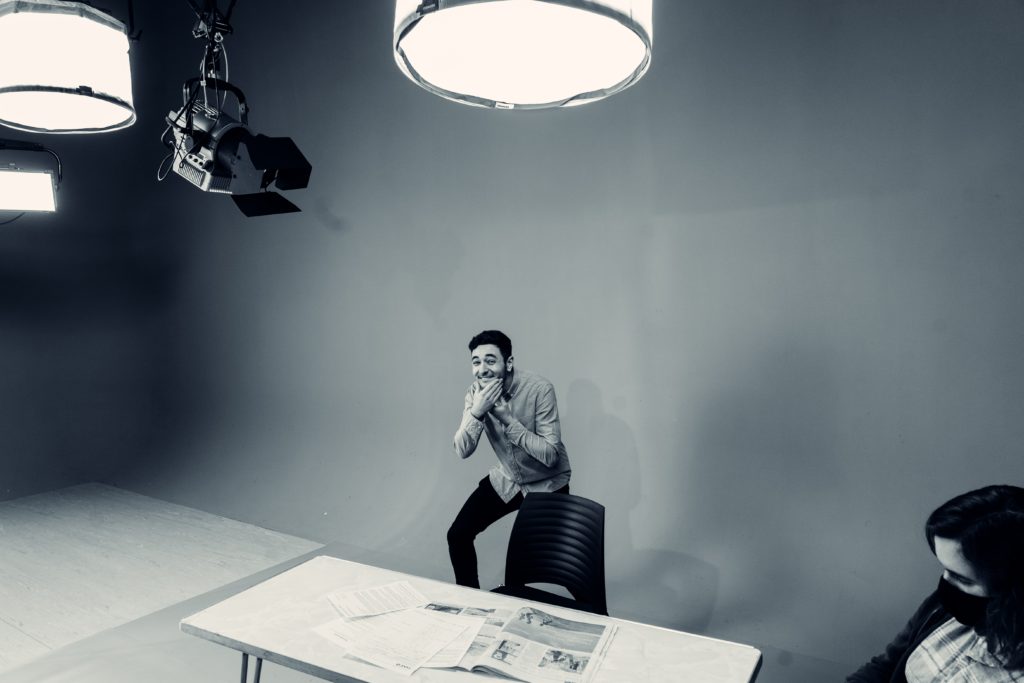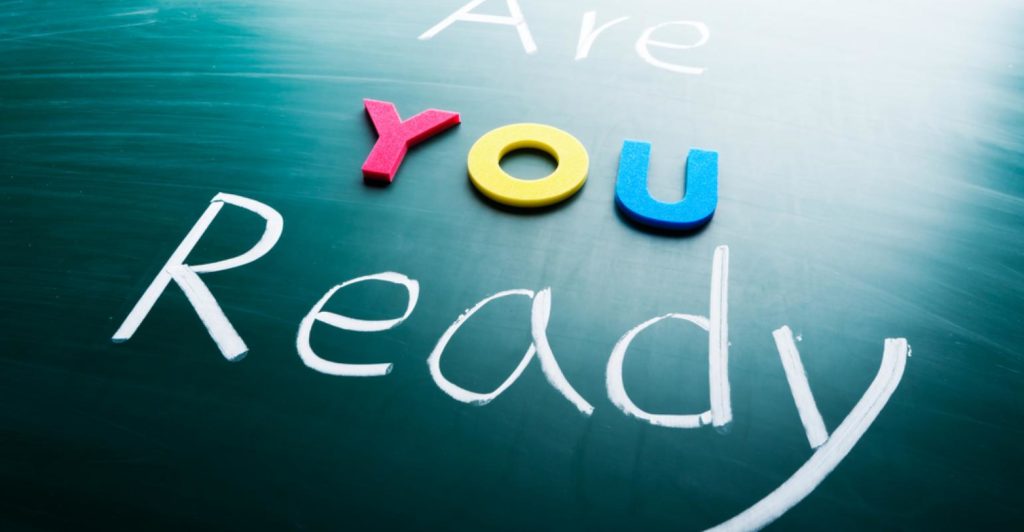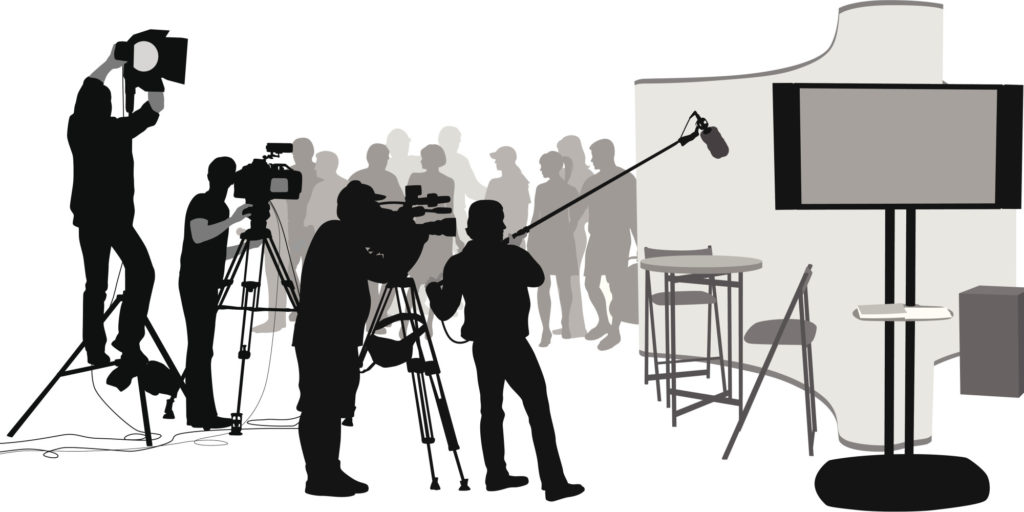By Craig Wallace
Auditioning is a solitary process. You receive your sides and read them alone. You do the work of exploring the material as well as your own emotional mapping to find the most interesting intersection between you and the character alone. You sit in the waiting room alone. And finally you walk alone into the room the audition.
With no one guiding you, it’s easy to get off track.
Let’s take a look at how you can stay conscious every step of the way.
Conscious in Preparation
As an auditioning actor, you need a technique that leads you consciously through the preparation process so that each moment you spend on the piece enriches the character and brings the words on the page to life. This technique should act as a benevolent yet strict director, keeping you focused and on track and keeping you away from the second-guessing and neurotic repetition that can suck the life out the final read.
Every time you pick up the sides it must be because you are improving the piece and your connection to it. And when you feel this connection, you need to be conscious enough to stop.
A good technique, like a good director, tells you how to begin preparing, how to connect fully with the material, and lets you know when you’re finished. This is conscious preparation.
Conscious in the Waiting Room
The waiting room presents many potential challenges: a potentially long and draining wait; a comparing mind that may be seeing everyone else as better for the role; loud, insecure actors trying to psyche out the competition; and on and on. It can overwhelm you to the point of numbness.
As well as you may have prepared, if you’re not conscious of your needs through this part of the process, it can all fall apart. A good way to keep that from happening is simply asking yourself, “What do I need in this moment?” And then really listen to the answer from your body, mind, and/or heart.
Maybe you need to breathe more deeply, maybe you need to get up and walk around, maybe it’s water or some food if you’re there a long time. How about listening to a really calming playlist?
If you continuously ask yourself “What do I need in this moment?” you’ll stay conscious from the moment you arrive to the moment you walk into the room to audition.
Your experience in the waiting room is make or break. Don’t just try to get though it— let it nurture you and help you to be your very best in the room.
Conscious in the Room
This one would seem to be obvious—of course you’re going to be conscious in the room, that’s what you’re there for! But it’s sometimes harder than it sounds to remain totally conscious and completely present when your brain is racing around taking in all of the new stimuli and your heart is beating fast with excitement and anticipation.
I have heard many actors tell me they lose their confidence when they walk into the room, and all of their work goes out the window during the read. They feel as if they weren’t really there.
This is when you can lean on the body stabilize you. When you walk in and take your place, take a moment and feel your feet on the floor. Gather strength from the grounded sensation of being firmly rooted to the earth and then take an energizing breath that expands the upper chest, opens the shoulders, and straightens your posture. Now you’ve truly taken your space and are ready to work.
When it comes time for the reading, it’s important that you’ve prepared in a way that allows you to let go and trust that your hard work will shine thorough with the ease and confidence of the true professional. If you feel yourself pushing or going flat or otherwise losing consciousness, it’s essential that you immediately reconnect with your listening. If you’ve done the work of fleshing out the relationships in the piece, listening will re-trigger your emotional connection, allowing you to relax back into the rhythm of a true conversation.
The more you feel grounded the more conscious you’ll be as you move from moment to moment—free to listen, react and respond.
It takes focused, conscious work to deliver a great audition, but with a solid technique as your guide you’ll ensure that all of your auditions will be alive with humanity: interesting, fun, and surprising.
Conscious of Genre:
It’s essential that you be to be conscious of the demands of the genre you’re reading for. As an example, let’s look at the world of procedurals.
Procedural dramas, loosely defined as shows where a problem is introduced, investigated, and solved in the course of an episode, are taking over television. Not only are there more than ever before, but there are more types than ever before. We have crime, legal, medical (three new hospital dramas this season), military, and science procedurals, as well as procedurals that go all season long in the solving of one crime.
In this landscape, you will have opportunities to audition for procedurals more than any other type of show. It is therefore essential for you to have a way of working that allows you to recognize the genre, sub-genre, the type of role in the sub-genre, the requirements of that role, and that also gives you the skills to still bring your singular point of view and voice to role.
Let’s take a brief look at three of the roles most commonly cast as co-star and/or guest stars on a crime procedural, as well as some tips on how to audition for them:
Suspect. These roles are usually comprised of a scene or scenes in which you are being questioned/interviewed by detectives. There are almost always two people doing the interrogating. It’s very important when auditioning for one of these roles to establish different relationships with each of the detectives; it’s a rookie mistake to lump them together. You can tell from the lines if there’s a good cop-bad cop dynamic taking place. If not, it’s up to you to decide, for example, which of the two you find more understanding and who you find more threatening.
If you watch crime procedurals, you’ll notice during these scenes the camera spends a lot of time on the suspect’s face, gauging their reaction to each detective’s questions. It is essential they see in the audition that you have the ability to have two separate relationships and two separate sets of reactions.
Continuing on this theme, it is also a requirement that you listen especially well in these auditions. Given that these will be heavily reactionary roles, they will need to see that you can be just as interesting in your silences as you are when you’re speaking.
Plus, there’s a lot at stake! If you’re the killer, you have to hear exactly what they’re saying in order to not step in a trap. And if you’re innocent, you need to prove it to them by answering their questions believably. All in all, there are plenty of reasons to be alive and active in your listening when you’re auditioning to be a suspect.
Witness. When you’re auditioning for a witness to a crime, you need to bring a very strong intent to the story that you’re telling. You can’t just recount the incident. If you book the role you will be responsible for delivering the emotional content, as well as the facts of the event. A personal intent that resonates deeply with you will drive you
through the description of the events and give the incident a heartbeat. Only then will we believe that it is something truly worthy of an hour’s time to figure out!
Expert. As our detectives move through their investigation, they may seek the help of a forensic expert, a coroner, a professor, a legal scholar, or some other type of expert.
These can be really fun and challenging roles to play, but understanding the requirements is essential to giving a job-getting audition.
First of all, you have to be believable in the profession for which you’re auditioning. This means of course, knowing the lines, but also having a sense of natural ease with any of the technical dialogue. If it doesn’t sound like a second language coming out of your mouth, you won’t get the job. When you’re preparing, have fun getting to know the sounds and feelings of the words, from how they feel crossing your vocal cords to where they resonate in your body. If you simply memorize the lines, you’ll sound like an actor reciting. If you take the time to embody the words, you’ll sound like an expert speaking.
Now, in order to bring all of that expert dialogue to life requires that you have a compelling relationship to your job. These roles often have no backstory and little emotional content, and yet you are a person and people come alive in relationship to what/who is important to them. So, really dig into the feelings you have for your job, how secure or insecure you are in it, if you’re passionate or tired, if it’s your world or a necessary evil. Make it interesting to you, so that the words contain the life and weight of the career as you feel it and as the expert lives it.
Also, as with the suspect, the relationships with the detectives are also key. Does the fact that you’re talking to detectives make you feel smug, enthusiastic, creepy, defensive? Which one of them really bugs you?
When you watch crime procedurals you’ll see that the people who book these roles always have a strong point of view on what they do and how they share their expertise to the people in front of them.
These are easy roles to go generic on in an audition—don’t!
The information that the expert conveys must be clear and memorable. It’s often the case that the outcome of the show hinges on something the expert said in the first 15 minutes of the episode and the audience needs to remember when and where they heard it. So, while you won’t be going into the audition to put on a huge show, you need to have great commitment to the specific decisions you’ve made for the piece.
Your audition hinges on it!
This is just a small sampling of the roles that you could be auditioning for on one particular type of procedural. The larger point is that the more specific the types of procedurals are getting, the more specific your audition work has to be.
Conscious of today’s marketplace:
And it’s not just procedurals. You also need to be conscious of the complexity that exist in television today.
The days of saying that a show is simply a comedy or a drama are over. Actors who will book in this environment will be the ones whose text recognition skills, technical skills, and creative skills are all operating together at a higher level than they ever have before.
Auditioning has become a more dynamic, creative process, and necessarily so, given the level of skill and creativity it takes to book a job in today’s ultra-competitive job market. Your way of working has to help you to go deep—to discover shades in yourself and in the text that will not only help you to book the job, but will also make you a better actor.
A great audition strikes the perfect balance between preparedness and flexibility.
The people in the room want to see who you are and what you have to add to the role. They do not want to see a set finished performance. This is the job interview, not the job.
If they like what they see from you, they will want to work with you, adjust you. You won’t be able to adjust, however, if you have “set” your work. You need to have prepared so that you know your intent, your relationships, and the different parts of your emotional mapping that will be become your choices. But you can’t lock down the manifestation of those choices. Nailing everything down takes away any chance of anything interesting or spontaneous happening in the room.
This is the whole story of auditioning and what so many have trouble with: You have to be prepared and know what you are bringing into the room and what you want them to see, but you need to leave the details of how it all happens to the moment. Your awareness of how you feel in the moment will provide the color and texture that is honest and appropriate for each choice.
Many actors tell me that when they perform a role it’s easier because they can prepare all the way to the finish line. But is that really the right way to go about it? How about taking the lesson from auditioning that flexibility can bring spontaneous moments of transcendence, adding energy and immediacy that can so easily be eliminated by over-rehearsing.
All performance-based disciplines carry an element of leaping in the dark. If you have a solid technique, your preparation will weave the net that will catch you. Knowing this will help you to leave room for magic in your auditions and your performances.
I’ve found that sometimes when actors have the role and are readying to give the performance, they cut back on their personal investment and count a bit too much on the director, other actors and knowledge of the scene to carry them through. They’ll never be bad, but they’ll never be great.
The art of film/TV acting is the art of expression. You’re not so much creating a role from the outside as you are going deep inside to give the role your own unique heartbeat.
Once you’ve booked, it’s time to keep exploring and working to find the truest intersection between yourself and the words.
Whether you’re auditioning or performing, you’re still acting. By focusing on what the two disciplines share, the need for deep exploration and flexibility among them, you will not only get the job, but also be able to give a much more dynamic, layered, and winning performance.







